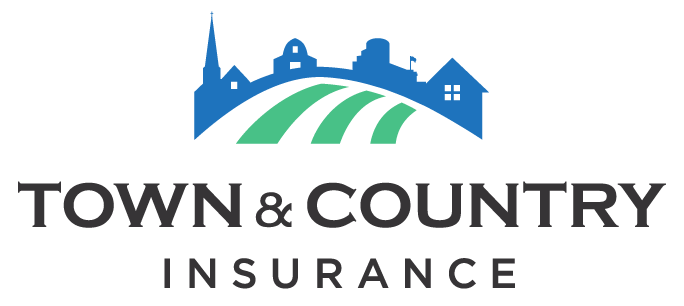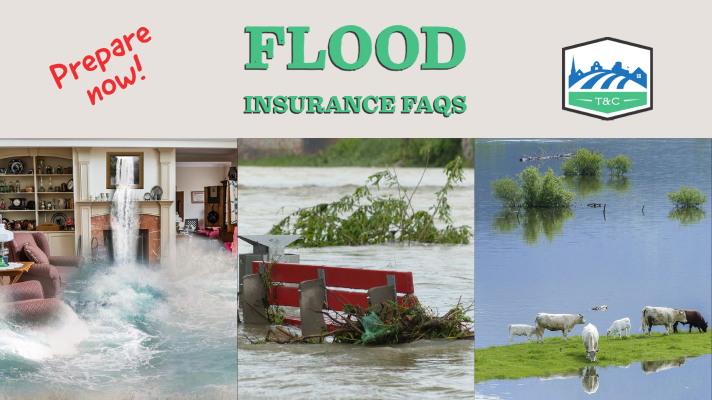Each year, it seems we go through the same thing… flooding. And each year, we get a lot of questions about it! Here are a few Flood Insurance FAQs and answers to help you decide what’s best for you and your asset protection goals.
What Do I Need To Know About Flood Insurance Coverage
Watch this quick video provided by FEMA to help you understand what is and is not covered by flood insurance.
View in FEMA Multimedia Library
A Few Flood Facts From FEMA
Say that ten times fast! But in all seriousness, there are many common misconceptions about Flood Insurance. Let’s clear them up.
- FACT: Floods are the nation’s most common and costly natural disaster, and cause millions of dollars in damage every year.
- FACT: Homeowners and Renters insurance does not typically cover flood damage. Additionally, sewer back-up coverage is often an add on to a homeowner’s policy. Be sure to clarify your coverage (or lack thereof) with your agent.
- FACT: Floods can happen anywhere. More than 20% of flood claims come from properties outside the “high-risk flood zone.” Calculate your Cost of Flooding.
- FACT: As long as your community participates in the National Flood Insurance Program (NFIP,) you can buy a flood policy. Check your flood zone here, at FEMA’s Flood Map Service Center.
- FACT: Flood insurance can pay regardless of whether or not there is a Presidential Disaster Declaration.
- FACT: Most federal disaster assistance comes in the form of low-interest disaster loans from the US Small Business Administration (SBA), and you have to pay them back. FEMA offers disaster grants that don’t need to be paid back, but this amount is often much less than what is needed to recover. A claim against your flood insurance policy could, and often does, provide more funds for recovery than those you could qualify for from FEMA or the SBA -and you don’t have to pay it back.
- FACT: Wildfires dramatically change landscape ground conditions, which can lead to increased risk of flooding due to heavy rains, flash-flooding, and mudflows.
- FACT: Your mortgage lender may require you to have flood insurance. Congress has mandated that federally-regulated or -insured lenders require flood insurance on mortgaged properties that are located in areas at high-risk of flooding. However, even if your property is not in a high-risk flood area, your mortgage lender may still require you to purchase flood insurance.
What Factors Determine How Much You Pay For Flood Insurance?
Whether you purchase an NFIP policy through Town & Country Insurance, through a captive insurance agent or through another source, your cost does not change. You will pay the same price based on factors specific to the property you are insuring.
We can also check availability for a flood insurance policy through a private insurance market. The benefit to a private policy is that it is often less expensive. However, without notice, private carriers can put a moratorium on issuing policies, so you should act fast if you’re interested in this.
In 2019, we were able to issue a private flood insurance policy on March 12, and on March 13, 2019 – we were not. Contact us right away if you are considering a private flood insurance policy.
Watch below to find out which factors affect the price of your flood insurance policy.
View in FEMA Multimedia Library
While there are a number of actions you can take to pay less for flood insurance each year, here are the major four. Note: some of these actions may be outside of your control.
- Lower your flood risk: Elevate utilities, install flood openings, fill in your basement, or elevate your property
- Choose a higher deductible
- Provide an elevation certificate: If your property meets elevation requirements, you may receive cost savings.
- Encourage your community to mitigate risk: The latest publication dated 5/2012, listed both Aitkin County & Pine County in the top 50 communities in Minnesota by number of Flood Insurance policies issued. However, neither county was registered through NFIP’s Community Rating System (CRS.) Find out more on how you can help your community through CRS.
Now What?
If you have a flood policy, now is the time to review it and clarify any questions you may have. Update your agent with any basement remodels, inventory, or other items which could be affected by a potential flood. You’ll want to be sure any updates are covered by your existing policy.
If you do not yet have a flood insurance policy to protect your property, our local agents can help you. Until the private market puts a moratorium on private flood policies, you can contact us. Otherwise, you may also contact NFIP directly here.
Contact Us About Flood Insurance
Information Credit: FEMA




